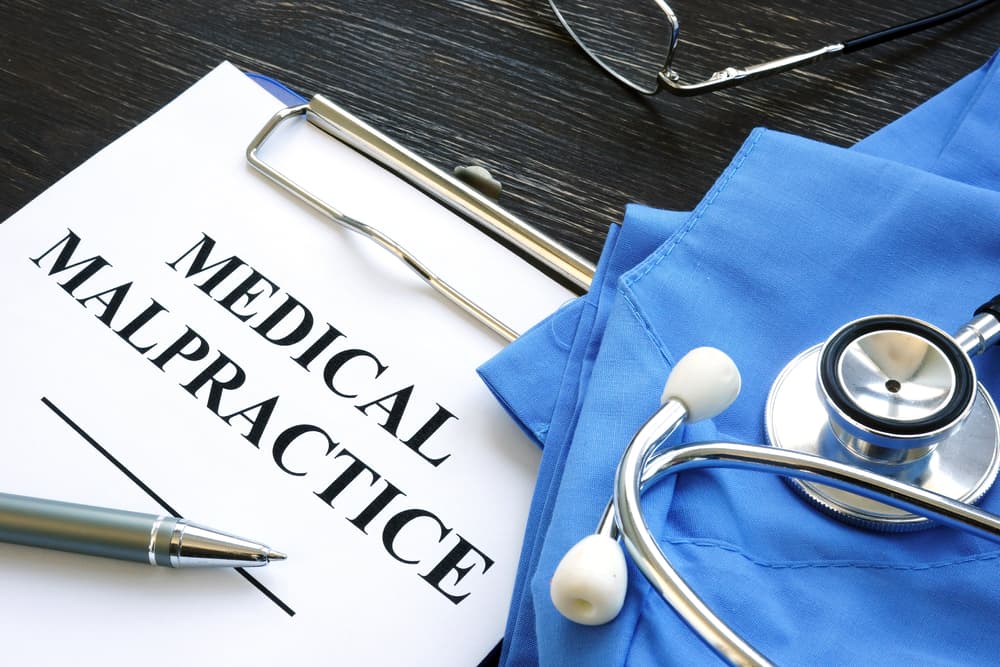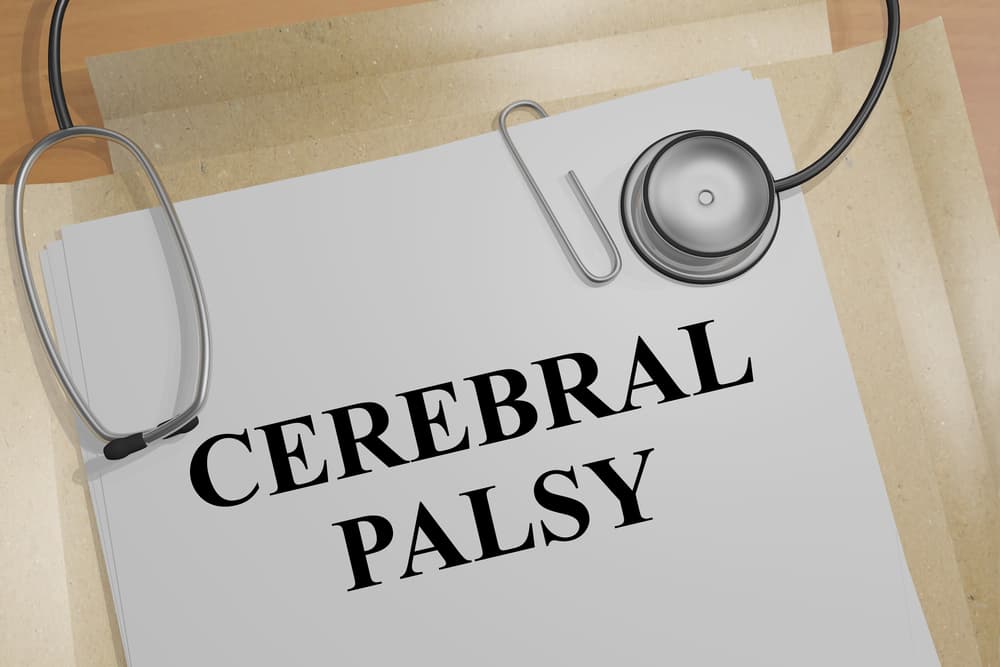A cesarean section, or C-section, is a way for a mother to give birth whenever vaginal birth presents risks to the child or the mother. Even though a C-section presents various benefits, a woman typically requires a longer recovery time from this major surgery. In addition, when a woman undergoes a C-section, various complications can arise.
A medical professional must recognize when a C-section may be necessary and, if so, perform the procedure correctly and promptly.
A medical provider can plan a C-section well before a woman's delivery date. Sometimes, a provider may order the procedure after a woman has already begun labor. In these circumstances, an emergency or prolonged delivery process requires a C-section. If a medical provider does not correctly identify the need for a C-section, or if they fail to perform the procedure correctly or react in a timely manner, harm may occur to both the mother and the child.

You may have legal options if you or your child suffered birth complications due to a delayed or improper C-section. An experienced medical malpractice attorney can meet with you to discuss your unique situation and determine your eligibility for filing a medical malpractice claim or a lawsuit.
First, a lawyer can assemble the necessary documents to file the appropriate claim in your case. They can also represent you during negotiations with insurance company adjusters and pursue favorable settlement compensation on your behalf. If that does not work, they can file a medical malpractice lawsuit in the court system and work to secure the compensation and justice you deserve.
Never wait to schedule a free consultation to discuss your situation with a trusted attorney and learn whether you might have a medical malpractice claim.
When is a C-section Necessary?
In certain situations, a C-section is medically necessary to protect the mother or their child.
Some of the most common reasons why a C-section may be necessary include:
- Problems with the mother's placenta, such as placental abruption or placenta previa
- Compression of the umbilical cord
- Situations where the umbilical cord wraps around the infant's neck
- The mother had a prior C-section and is unable to have a vaginal delivery
- The infant is in the breech position (with its legs facing down), making traditional delivery risky
- The mother currently suffers from heart disease, hypertension, or other serious health issues
- The mother has HIV, genital herpes, or some other condition that can pass along to the infant should a vaginal delivery occur
- The child has a diagnosed birth defect or other serious health issue
- The mother or the child becomes distressed during the delivery process, such as from not receiving the necessary oxygen
- The infant will be unable to fit through the birth canal, or the mother's cervix will not dilate
If a medical provider fails to recognize the need for a C-section, fails to perform the procedure, or does not perform the procedure soon enough, the mother or child may suffer severe complications. In that instance, medical malpractice has likely occurred.
An experienced legal team in your area can discuss your circumstances with you and determine your eligibility for filing a successful medical malpractice claim or lawsuit.
Serious Medical Complications That Can Result from a Delayed C-section
When a medical complication arises during the delivery process and a healthcare provider fails to perform a timely C-section, numerous problems can occur that affect the mother or child's health.
For example, a delayed C-section might prevent the child from getting the necessary oxygen to their brain, resulting in cerebral palsy or some other serious birth injury or defect. These medical complications can lead to lifelong mental impairments and incapacity. In some situations, the child may need to rely on around-the-clock caregivers.
You are not alone if you or your child suffered severe medical complications due to a delayed C-section. The right attorney can review your legal options with you and help you embark on the best course of action for your case. They can file a medical malpractice claim on your behalf, work with insurance company adjusters, and, if necessary, pursue litigation in civil court.
Legal Elements of a Medical Malpractice Claim
In a medical malpractice or negligence claim, the injured patient has the sole legal burden of proof. Therefore, to recover monetary compensation and damages, they must establish the validity of several legal elements.
First, medical providers owe their patients a very high legal duty of care. Specifically, they have a responsibility to act as a hypothetical reasonable medical provider should have in the same or similar circumstances.
Medical specialists, including gynecologists, must typically follow a national standard of care. When a medical provider deviates from – or breaches – the prevailing standard of care when treating a patient, they may be responsible for medical negligence.
In the context of a delayed C-section, a medical provider may breach the prevailing standard of care if they:
- Fail to recognize the need for a C-section
- Fail to perform the procedure correctly
- Fail to perform the procedure in a timely manner to avoid further medical complications or birth defects
Next, the injured patient must demonstrate that one or more severe complications occurred as a direct result of the medical provider's breach.
To prove the legal elements of a medical malpractice claim or lawsuit, you will need to have an independent medical provider on board in your case who practices in the same specialty. That medical provider must state, to a reasonable degree of medical certainty, that your treating healthcare provider likely committed a medical mistake. They will also need to demonstrate that as a direct result of that mistake, you or your child's medical complications occurred.
An attorney with experience handling medical injury cases can help you satisfy the legal elements of your claim or lawsuit. If litigation becomes necessary in your case, they can take your case to court and represent you in all legal proceedings, including a civil jury trial.
What Happens During Settlement Negotiations in a Medical Malpractice Claim
The majority of medical malpractice claims and lawsuits settle out of court. One reason why this happens is that medical malpractice litigation can be costly for everyone involved.
Calling experts to testify at a medical malpractice jury trial is one of the most expensive components of the process. Therefore, both parties have a strong incentive to resolve their case out of court.
After an independent medical provider submits their affidavit and your attorney submits all of the necessary documentation to the treating healthcare provider’s insurance company, settlement negotiations may begin.
However, never accept the first settlement offer that you receive. Insurance companies have a strong incentive to resolve cases for as little money as possible.
Insurance companies, after all, are big businesses, and they will do everything in their power to undervalue a medical malpractice claim and offer victims little-to-no monetary compensation for everything they endured. Insurance companies try to save themselves a significant amount of money by paying out as little monetary compensation as possible.
Anyone whose child suffered a preventable birth injury needs an attorney to zealously represent them throughout their case, including during negotiations with insurance company representatives.
The right law firm can highlight the strengths of your medical malpractice claim while referring to pertinent medical records showing your treating healthcare provider made one or more serious mistakes.
If the insurance company still refuses to compensate you fairly, your attorney can threaten them with litigation in the court system and, if necessary, file a timely medical malpractice lawsuit on your behalf. They can also answer all of your legal questions every step of the way and help you make informed decisions about settlement and litigation in your case.
Medical Malpractice Litigation
Medical malpractice litigation begins when an attorney files a lawsuit in the court system. After this point, the case may still resolve at any time. However, the court will typically establish deadlines for certain case milestones, including the completion of discovery and a settlement conference. The court may also set a trial date.
Throughout discovery, the parties will answer one another's written questions, called Interrogatories, and will likely attend discovery depositions. During a deposition, the defense attorney (the attorney representing the treating medical provider) will probably ask the patient personal questions about their medical treatment and other facts pertinent to the case.
In addition, over the course of discovery, the parties will exchange various documents and attend one or more settlement conferences with the court.
If the medical negligence claim does not resolve during litigation, the parties will typically proceed to a civil jury trial. Following a trial, the jury will decide the outcome of any disputed issues in the case, including the amount of monetary compensation to award the injured party.
Instead of taking a case to a jury trial, the parties can agree on one or more types of alternative dispute resolution, or ADR, such as mediation or binding arbitration. For example, during a medical malpractice arbitration proceeding, a neutral arbitrator evaluates the evidence in the case and decides on monetary compensation and damages to award the injured patient and/or their child.
You need a legal team to assist you throughout the litigation process and aggressively represent you at all litigation proceedings.
Recoverable Monetary Damages for Medical Negligence
In a medical negligence case, an injured mother or child may be eligible to recover various types of monetary damages, depending upon the severity of their injuries and the factual circumstances of the case – including the specific kind of malpractice the healthcare provider committed.
First, victims may be eligible to recover compensation for their past and future related medical expenses. They can also receive compensation for pain and suffering, inconvenience, permanent physical or mental impairments, loss of the ability to use one or more body parts, loss of life enjoyment, and lifetime care costs.
A dedicated legal team can help you develop realistic expectations for your case and let you know which damages you may be eligible to recover. They can also provide an estimated monetary value for your case based on your or your child's medical complications.
How Long Do I Have to File a Medical Malpractice Claim?

As with other injury cases, each state has a statute of limitations for filing medical negligence and malpractice lawsuits. For example, in Michigan, an injured patient must usually file their medical malpractice lawsuit within two years of the medical provider’s negligence, or six months from the time the patient discovered (or reasonably should have discovered) the medical provider’s negligence – whichever date is later.
Other states have statutes of limitations ranging from one to six years, and your attorney will know the deadlines that apply to your case. Given this relatively short time, you need skilled legal counsel in your case as quickly as possible.
Further, most medical malpractice cases require you to provide notice to the medical professional that you intend to file a claim. You want an experienced attorney who can meet all the legal requirements for a successful case. A medical malpractice attorney can file a timely claim or lawsuit and pursue the justice, monetary compensation, and closure you and your child deserve.
Call a Medical Malpractice Attorney about a Potential Claim Today

If you or your child suffered injuries or medical complications due to a delayed C-section, you have legal options to seek compensation. While money will not reverse any birth injuries, it can provide the financial support you and your family need following a difficult birth and resulting injuries.
Time is of the essence in injury cases, especially birth injury claims. Never wait to speak with a personal injury lawyer once you suspect your child suffered injuries due to a doctor’s failure to order a C-section soon enough.



